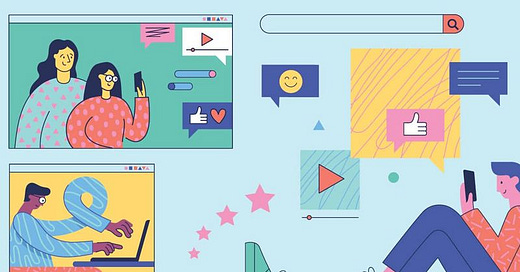🟥 "Time spent on app" is not a metric of success
What screenlife and "time spent on app" is doing to our brains. Also: Vampire capitalists, St. Patrick's Day in New England, suspense vs. surprise, and more.
📰 This is the Rubesletter from Matt Ruby (comedian, writer, and the creator of Vooza). Sign up to get it in your inbox weekly.
When were you buried alive? There is a screen in your pocket, on your desk, and on the dashboard of your car. There are televisions in your living room and bedroom. There’s a screen in your elevator, in the backseat of your taxi…
Keep reading with a 7-day free trial
Subscribe to The Rubesletter by Matt Ruby 💎 to keep reading this post and get 7 days of free access to the full post archives.



